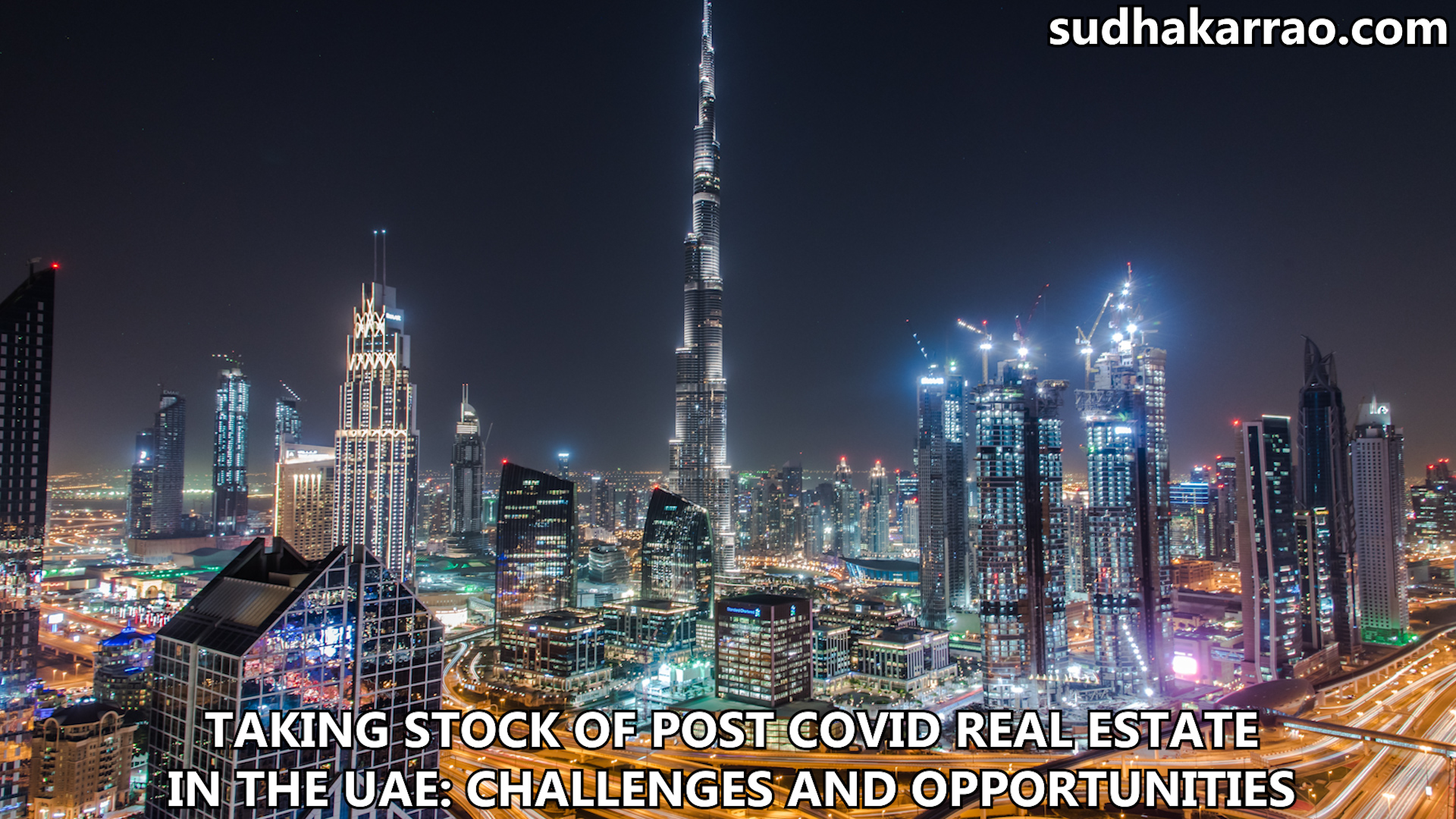Taking stock of post Covid real estate in the UAE: Challenges and Opportunities
At the end of 2019, before the Covid-19 pandemic introduced unprecedented factors into the mix, the UAE real estate sector was showing signs of a new cycle of growth. Having reconciled, at least in part, its oversupply issues; the market was demonstrating an appetite for new opportunities, in response to several well-conceived reforms and incentives, introduced by the UAE government.
Now, in the aftermath of the pandemic, the UAE has once again emerged as a nation that has benefitted from effective measures to control the spread of the virus, a successful and ongoing vaccination program, and the introduction of several incentives that are creating multiple new segments of homebuyers and commercial real estate investors. Let’s take a more detailed look, at the challenges and opportunities, which the market is being influenced by, in the new normal.
Making sense of diverse indicators
It’s safe to say that the pandemic has not been able to curb an overall sense of optimism in the UAE, and this is particularly evident in real estate. For instance, real estate prices in Dubai have witnessed their most sustained upswing, since the oil crisis of 2014(1). The Dubai Land Department (DLD), reported transactions worth AED 5.4 billion, during the week ending on July 29th, 2021(2); which itself comes close on the heels of the week ending July 1st, in which transactions worth AED 4.5 billion were reported(3). Such positives are not limited to Dubai – the nation’s premium real estate market. A recent report confirms that 2021 forecasts are either steady or indicating growth, all over the UAE – across hospitality, offices, industrial, residential, and retail(4).
However, there are some areas of concern as well. Aviation and tourism collectively make a 13% contribution to the GDP of the UAE(5). Even more crucially, these sectors have a massive secondary impact on real estate, which is not limited to hospitality properties. Another statistic of concern is that the number of expatriate residents in the UAE – who are an overwhelming part of the local population, and hence of prospective real estate investors – contracted by 8.4% in Dubai, and 5% in Abu Dhabi, in 2020 – which was higher than the GCC average of 4%(6). Covid-19 induced delays of the Expo 2020 also dampened the real estate growth being driven on the back of this global event – and it is still unclear whether that interruption will reduce the scale of the positives, which had been predicted before the pandemic.
Market sentiment remains upbeat, and with good reason
The UAE has significant sovereign wealth capital – with Abu Dhabi alone contributing holdings worth $1 trillion(7) – in a nation with relatively low population. These reserves give it tremendous leeway to course correct through reforms, stimulus packages, and other measures; in response to market factors that remain in a state of flux since the pandemic. In the context of the real estate sector, the UAE’s dynamic business community constitutes a major positive – with the country emerging as a leader in the adoption of Proptech, and the creation of state of the art properties that conform to the heightened regulations in the new normal.
The introduction of resident visa categories for investors – with a strong real estate component; incentives for first home buyers; reforms that give expatriates good reasons to move from renting to home ownership; and an overall focus on people-centric, future-ready, and innovation led growth; has ensured that the positives for real estate growth in the UAE are multi-fold, and that the challenges are being proactively addressed. Ultimately, real estate is an industry that is intrinsically entwined with market sentiment. In a world still reeling from the impact of the global pandemic; the UAE has emerged as a nation that has successfully weathered the worst of the crisis, and is in pole-position to lead renewed growth.
From successfully addressing the concerns of investors within its borders, to sticking out internationally, as the hotbed of opportunity; the UAE real estate market is attracting both interest and capital, and setting itself up for a new period of sustained growth.
- https://www.pwc.com/m1/en/publications/middle-east-economy-watch.html
- https://www.khaleejtimes.com/business/real-estate/dh54b-of-weeklong-real-estate-transactions-recorded-in-dubai
- https://wam.ae/en/details/1395302949067
- https://content.knightfrank.com/research/2198/documents/en/uae-property-value-movement-report-2021-2021-7930.pdf
- https://www.reuters.com/article/us-airlines-emirates-iata/aviation-and-tourisms-share-to-uae-gdp-seen-at-128-billion-in-20-years-iata-idUSKBN1WN0F0
- https://www.spglobal.com/ratings/en/research/articles/210215-expat-exodus-adds-to-gulf-region-s-economic-diversification-challenges-11800970
- https://www.bloomberg.com/news/articles/2021-03-01/wealth-fund-newbie-comes-into-focus-in-1-trillion-sovereign-hub?sref=zEzFg8RN




